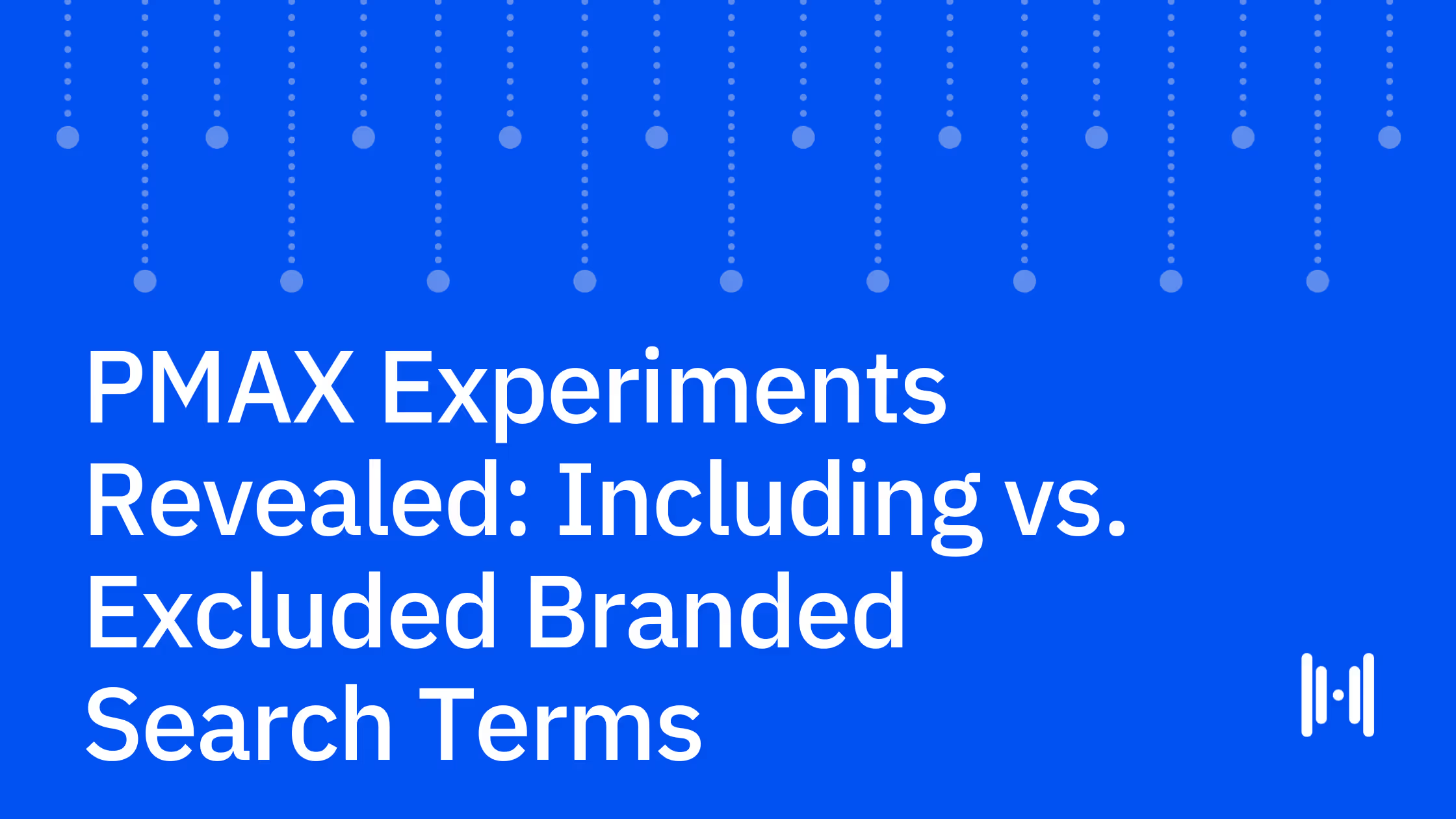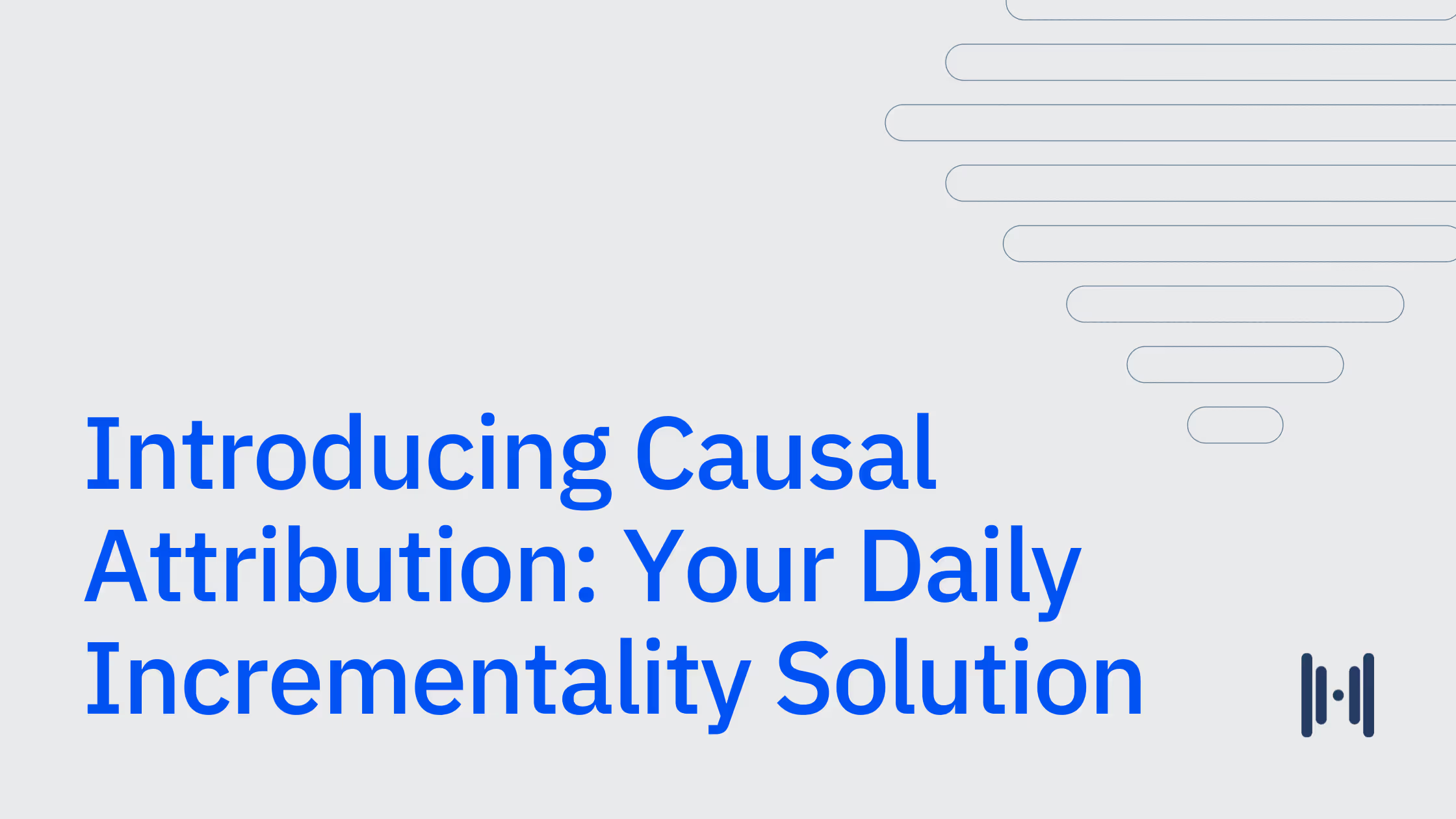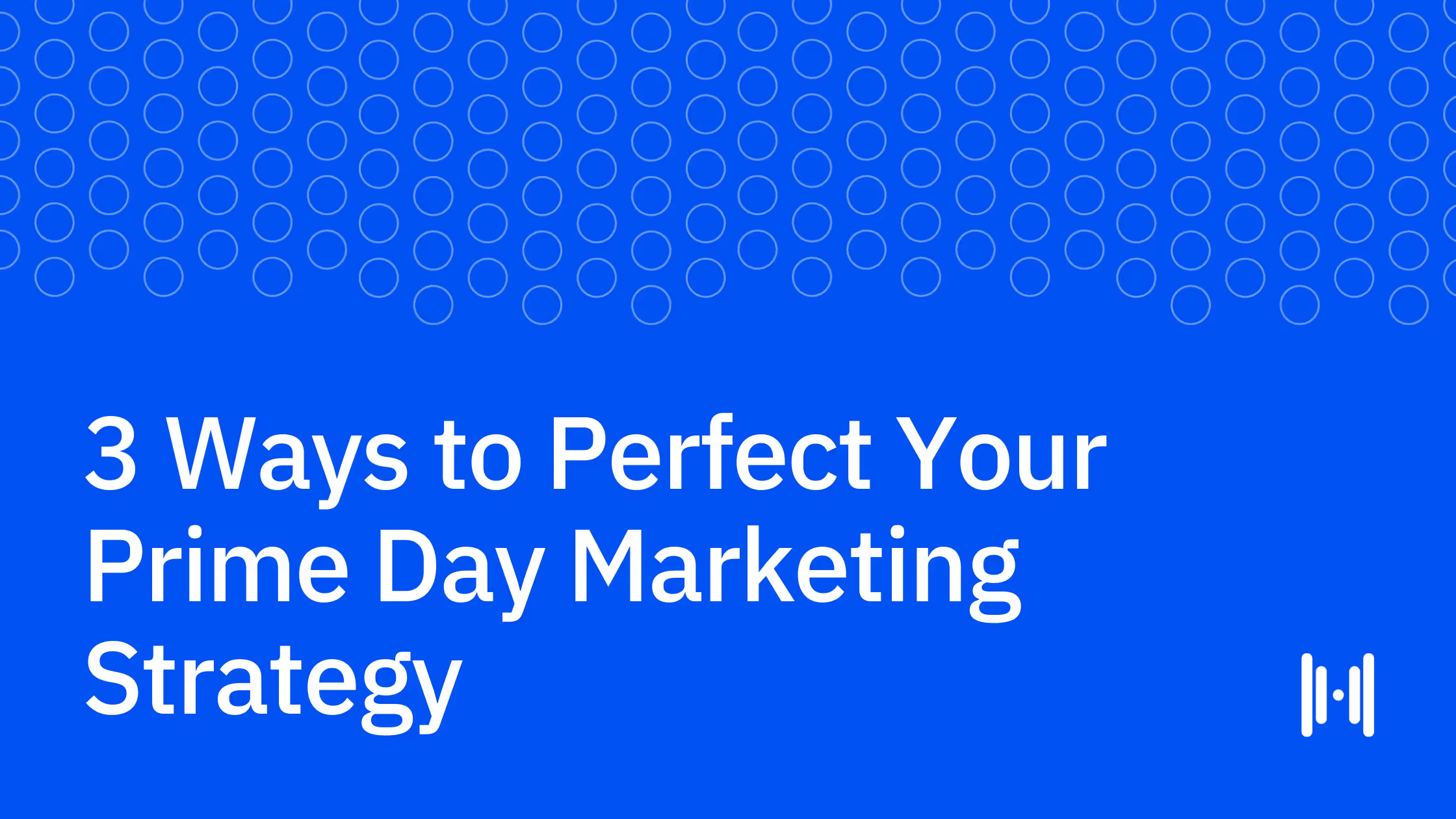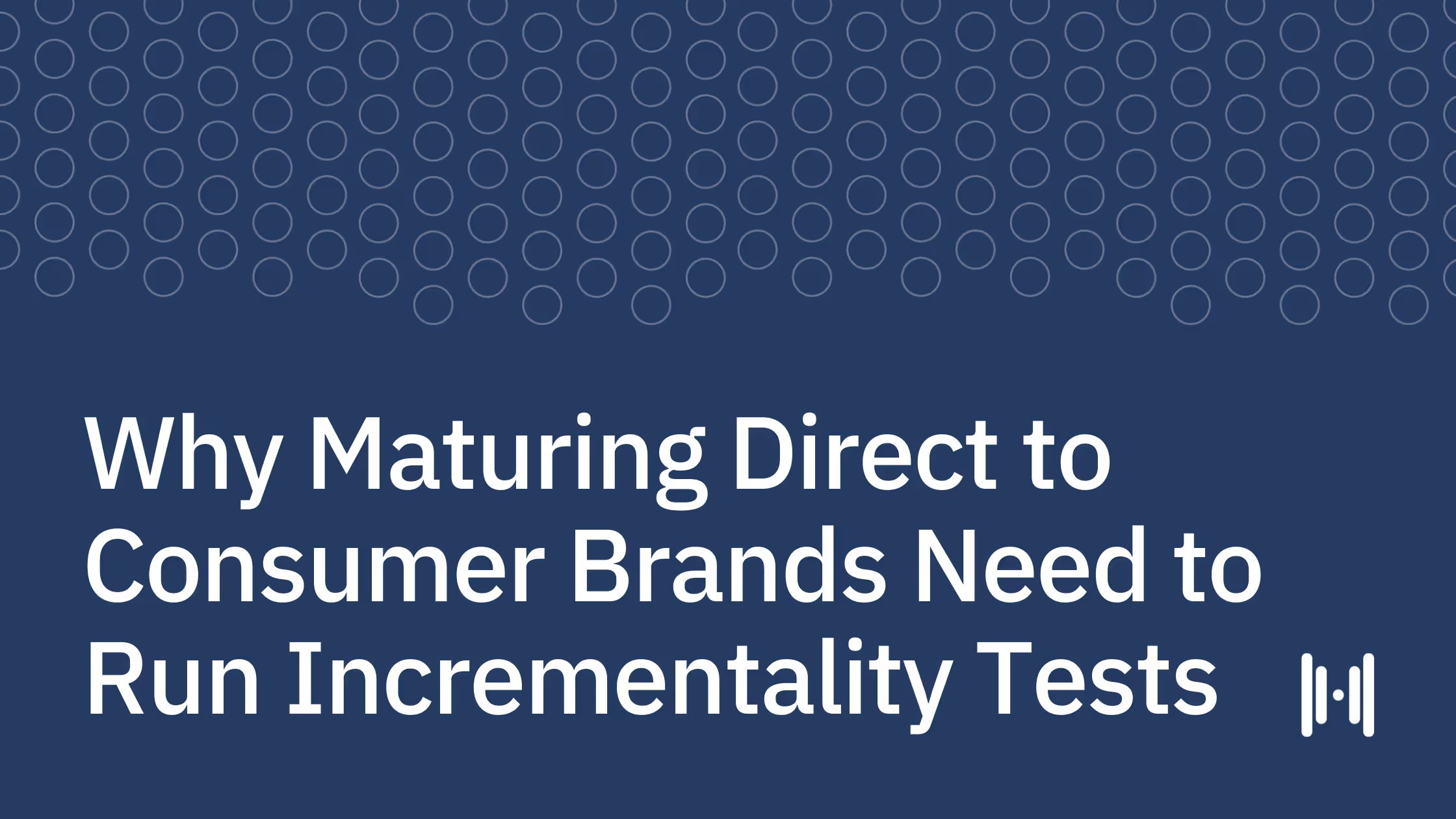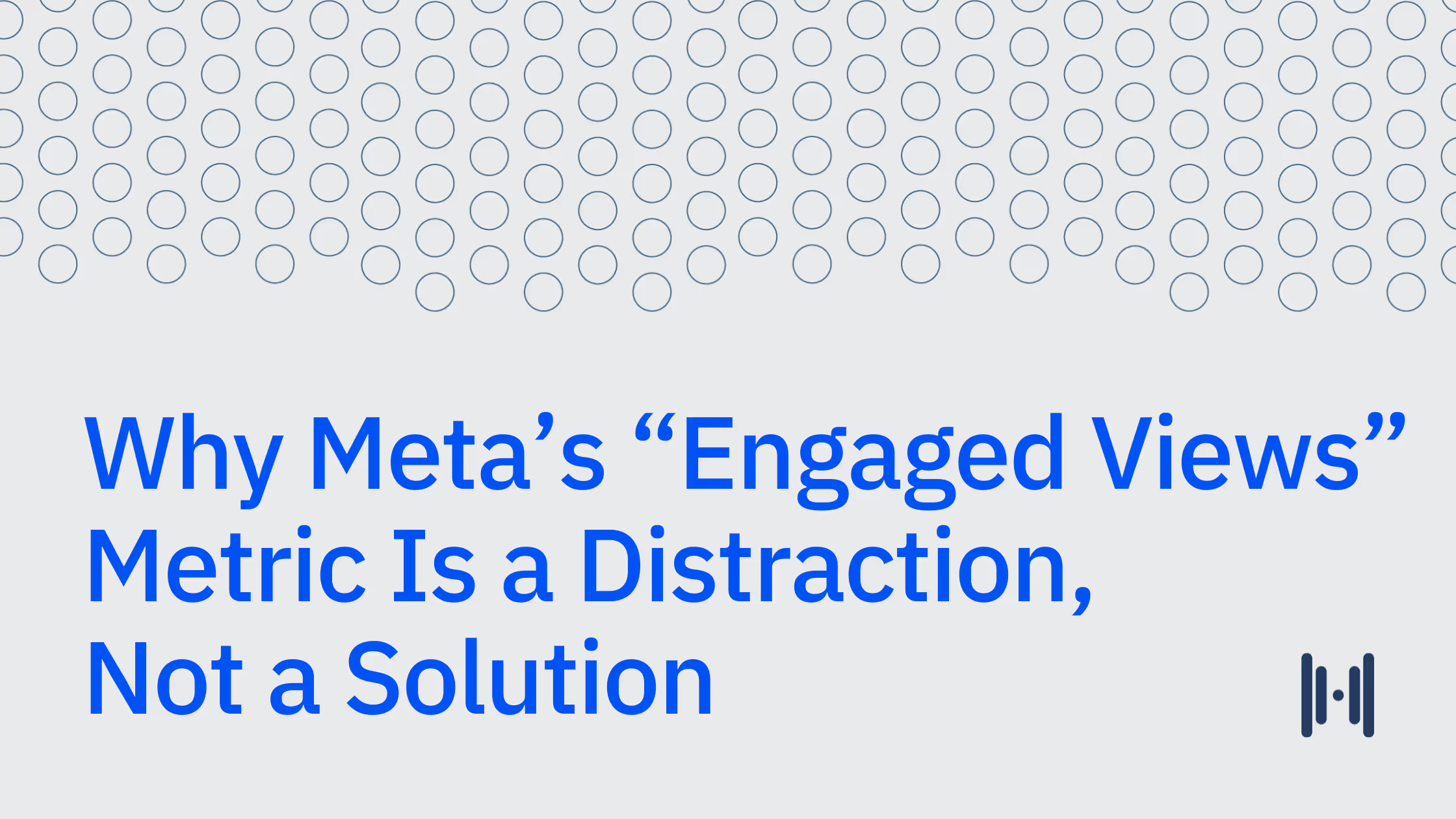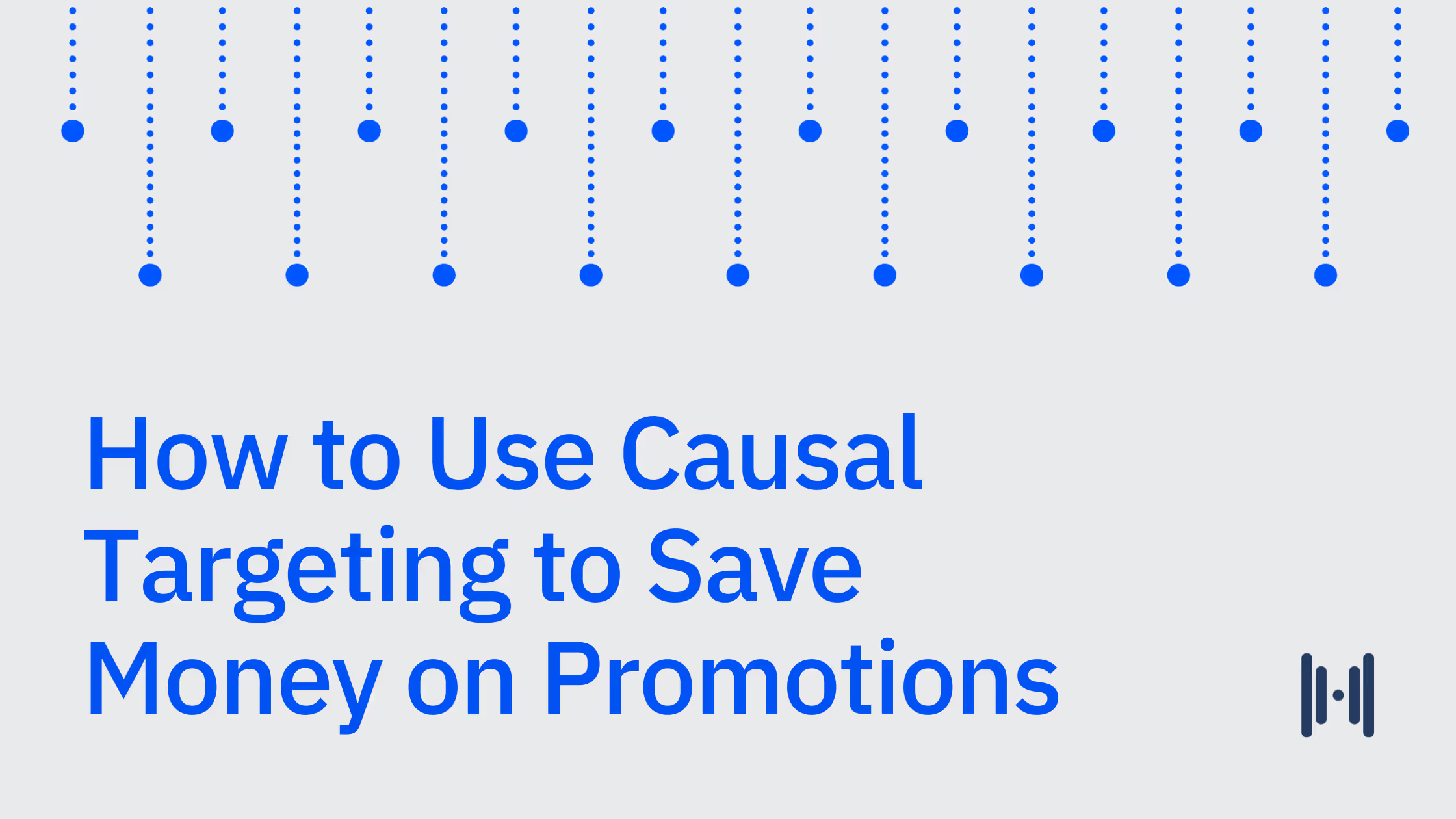“It Felt Like A Civic Duty”: Why MMM Specialist Arthur Anglade Joined Haus
Haus Principal Measurement Strategy Specialist Arthur Anglade has seen a lot of MMMs in his day. He sits down to explain why Causal MMM is different.
•
Oct 22, 2025
.png)
Few are as well-versed in marketing mix modeling (MMM) as Arthur Anglade.
Through these experiences, Arthur has developed a strong perspective on what works and what doesn’t when it comes to MMMs — and when he saw what Haus was building with Causal MMM, he knew he had the chance to be a part of something special.
Why did you choose to come to Haus?
Well, it felt like a civic duty.
I mean, I've been in these MMM meetings several times. You go into a room and go through the MMM results, and at the end, the marketer says, “Okay, we understand the recommendations, but how much do we trust them?”
And then someone will say, “I don't know, maybe we should validate the results with an experiment?” So you run one — on one channel, at one point in time — and it’s just an implementation nightmare (unless you run it with Haus).
Then comes Haus, where the minute you start building your MMM, you already know you'll trust it because we carry that trust from the Haus experiments into the MMM. And people trust our experiments because they’re scientifically rigorous and get at the actual causal impact.
Everyone knows incrementality is the right thing to do, but it's hard. We’re doing it, and I think the way we’re doing it is much more helpful for a marketer, especially for a marketer who wants, for instance, to better partner with their finance team. Because they aren’t looking at a black box — they’re getting visibility into the origin of the recommendations, which they can actually trust.
What are traditional MMMs doing wrong when it comes to incorporating experiments, specifically?
Well, first...they don't incorporate experiments usually. And when they do, it's a custom operation, trying to represent the signal in a model that was not designed for that purpose, with little information about the test.
But what the client doesn't see is that it's very hard. I have seen major measurement vendors who had run hundreds of experiments. But when customers went to the MMM team and said, “Let’s use this experiment to inform the priors,” hands would start to shake. They weren’t ready to do that because they didn’t have the right levers. The bottom line is the MMM is not designed to properly incorporate those signals. It was very illuminating to me. I sympathize with those teams, as there is no good way for them to do it well.
And it's hard to implement. If you pull it off, it's still a question of how much weight the experiments carry. Do they get enough weight? Does it account for seasonality? Is it built so that the rich signal of the experiment will be properly incorporated? In my experience, that hasn't been the case, not at scale.
Why do brands lose trust in MMMs and fail to act on their results? What erodes brands' trust in your experience?
For enterprise clients and major ad platforms, I see mounting scrutiny towards the signals that inform the MMM. What is calibrating the model? Benchmarks from other brands’ MMM? Academic studies? How well does this fit my brand? This is because advertisers and large platforms are learning how much of the MMM results is driven by what can be seen as opaque, arbitrary, subjective choices.
Another reason most MMMs are hard to act on is because media planning is often granular but MMM results often aren’t. So say you get MMM results, but it’s showing total Meta spend — but you don't really buy that way. You buy Meta prospecting campaigns, Meta retargeting, etc. So bridging the gap between planning and measurement takes some work when the results aren’t aligned with how you plan.
What are the top reasons that you think people should trust Causal MMM more than traditional models?
Because you can see it — you can see your experiment in the response curves. And when it comes to MMM recommendations, everything stems from the response curve. It all comes down to moving your spend along that curve. And so where does the curve come from?
No, it doesn't come from industry benchmarks or subjective choices. It comes from your experiment. You can see that the experiment you already trust is informing your MMM. I find that very compelling, because I can look at the curve and understand where some of it comes from.
Experiments also offer much-needed transparency into the process. This gives me enough confidence that you can reliably deliver results on an ongoing basis. With the response curves, there’s this kind of ongoing visual validation.
I have been asking several scientists behind major advancement in MMM this: “If you were a marketer, would you use an MMM?” Silence. “But what if experiments were used to inform and discipline the MMM?” “I’d be much more likely to use this MMM,” they say. (They’re scientists, so they can never say they are certain, so that is as good as it gets!)
What are some common misconceptions about MMM?
One misconception is that it takes a long time to refresh. That was my misconception. That's the first question I asked when I joined Haus.
What do you do for data collection? Every Monday, you get a new model. For some brands, it's a bit overwhelming to have a new model all the time like that, but it kills the myth that it takes three months. Before Haus, I didn't realize it could be that fast.
Another key is that MMM channels get informed by very different sources. For cMMM, identification of your return curves all starts at the same place: experiments, yours and ours, tailored to reflect the singular behavior of your company. So there's consistency with a single source of truth.
There is some buy-in in the industry for a single source because multiple sources are exactly what you want to avoid as an enterprise customer, where you have information for a channel that comes from MTA and experiments and MMM. You don't know what to trust. I’ve seen this lack of trust time and time again across my career — but now, with Haus’ Causal MMM, marketers have a platform they can trust for the long-haul.
.png)
.png)
.png)
.png)
.avif)
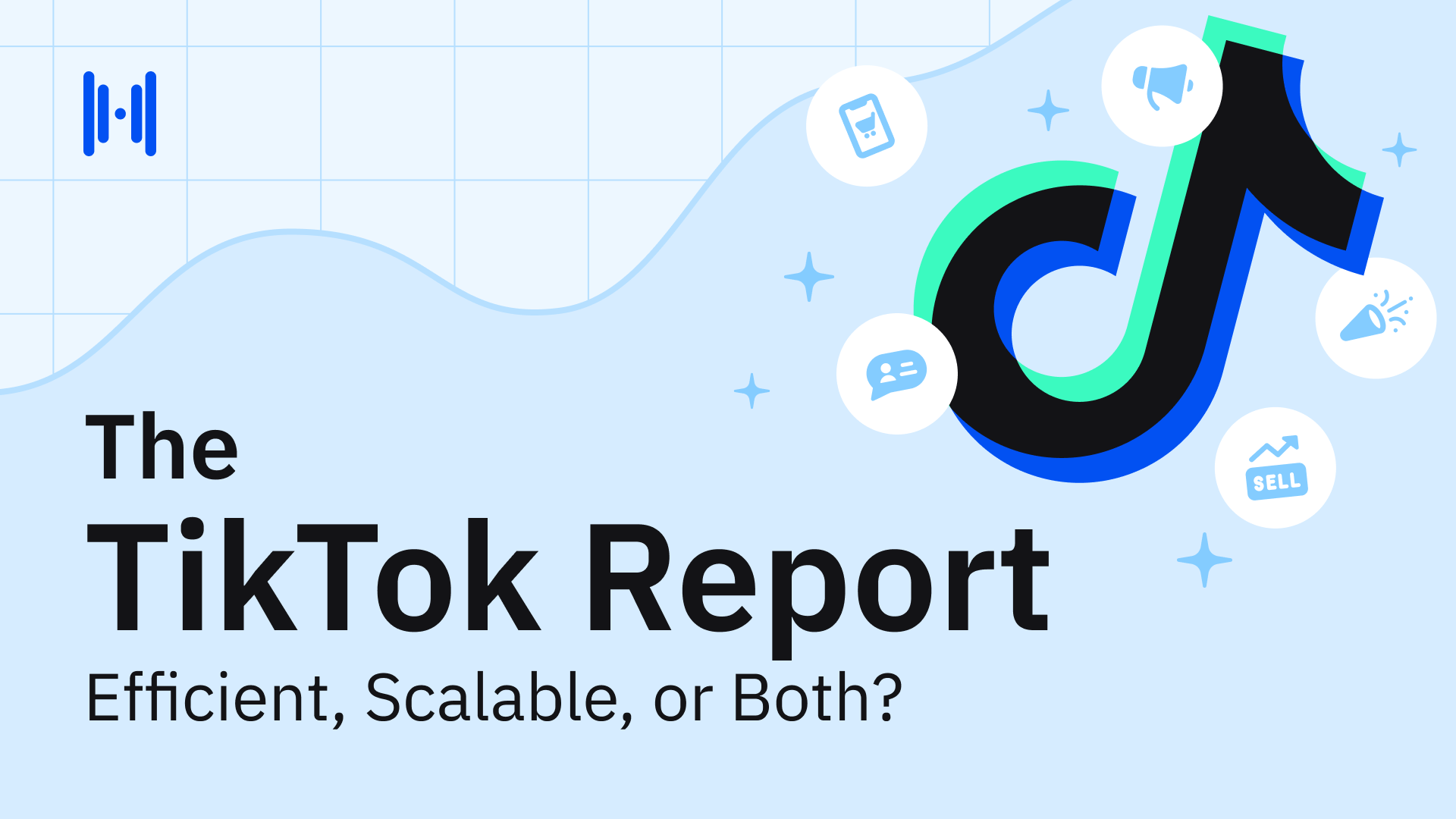

.png)
.png)
.png)
.png)
.png)
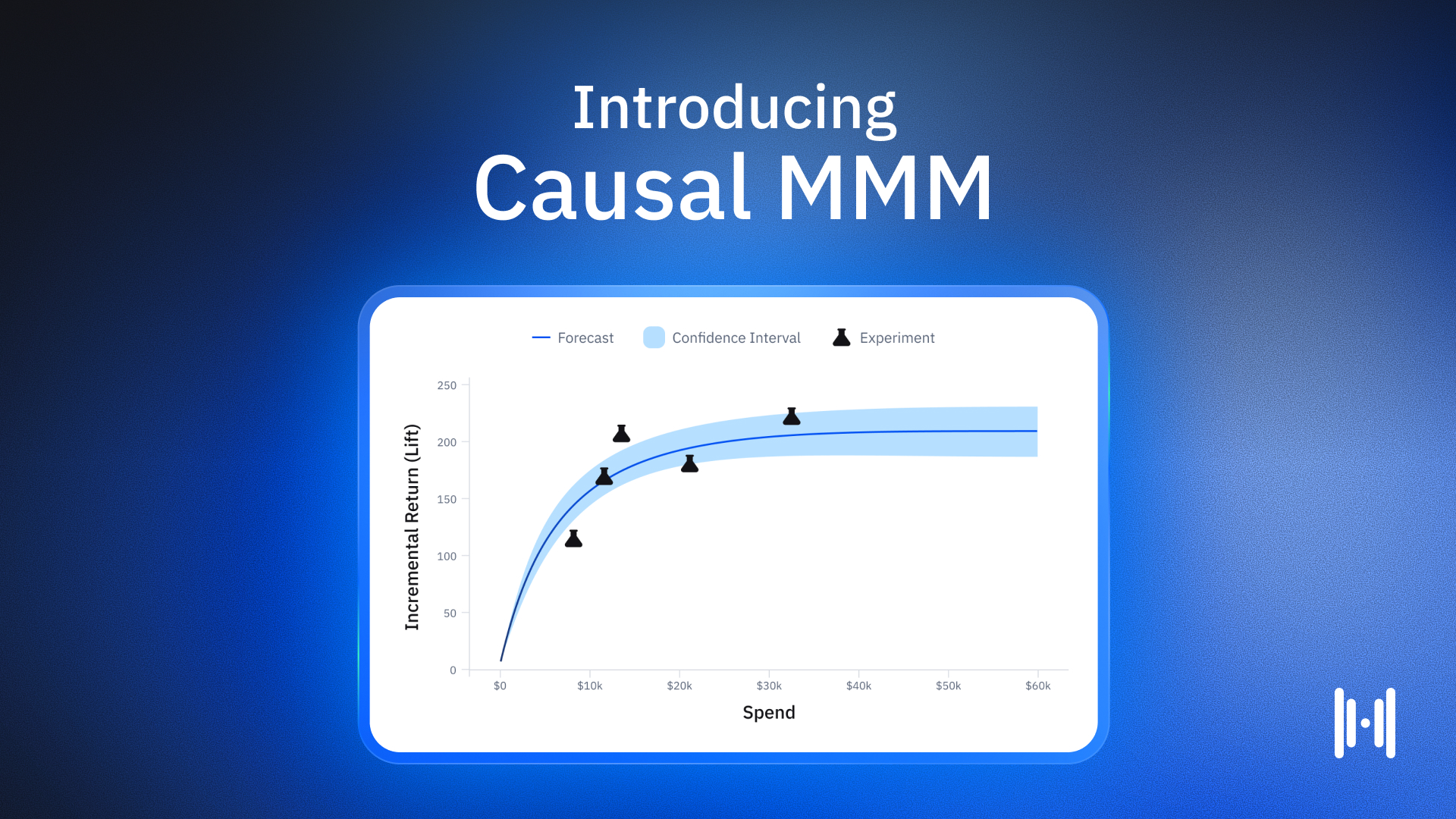
.avif)
.png)
.png)
.png)
.png)
.png)
.png)
.png)
.png)
.png)
.webp)
.webp)
.webp)
.webp)
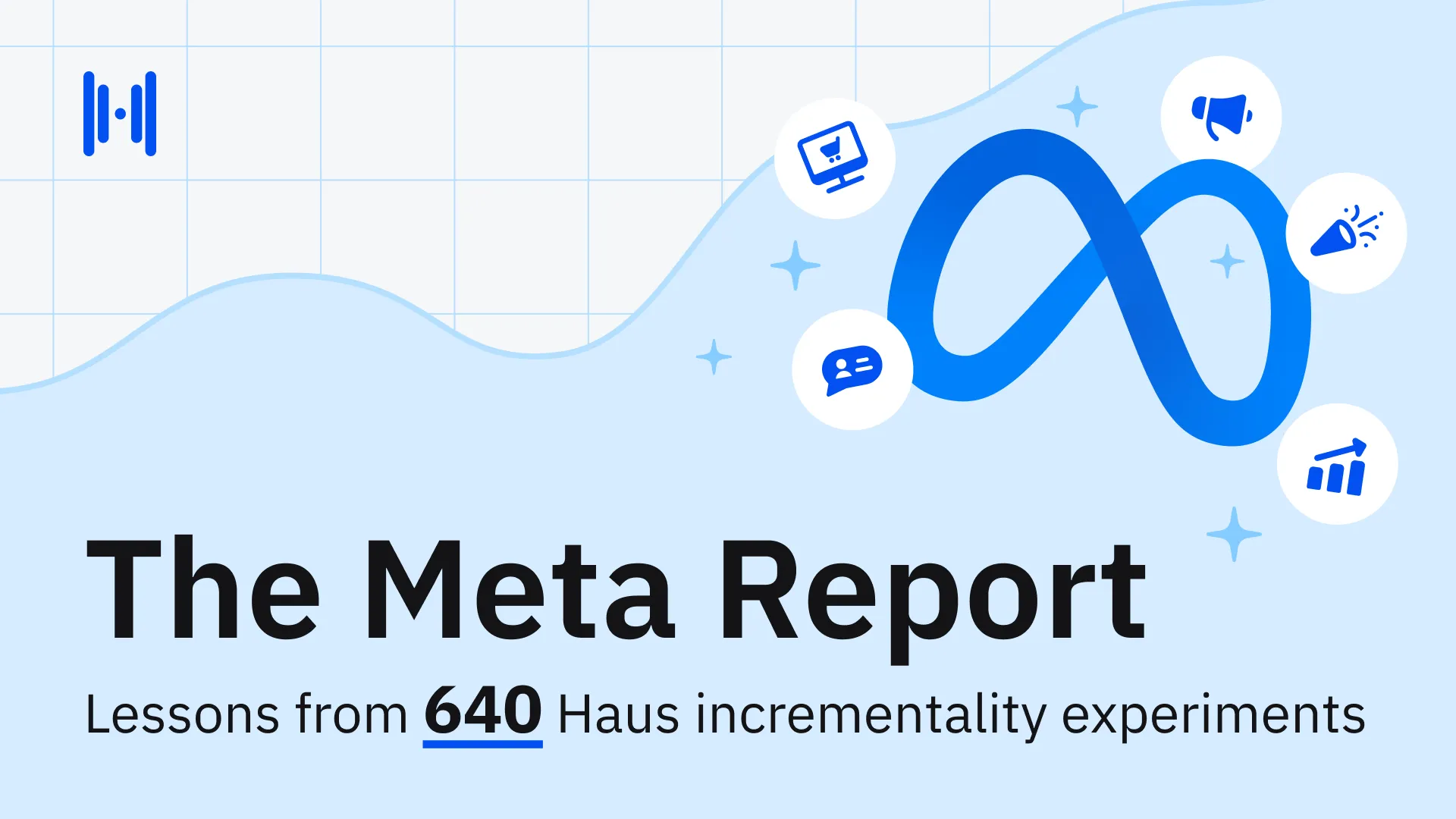
.webp)

.webp)
.webp)
.webp)
.webp)
.webp)
.webp)
.webp)
.webp)
.webp)
.webp)
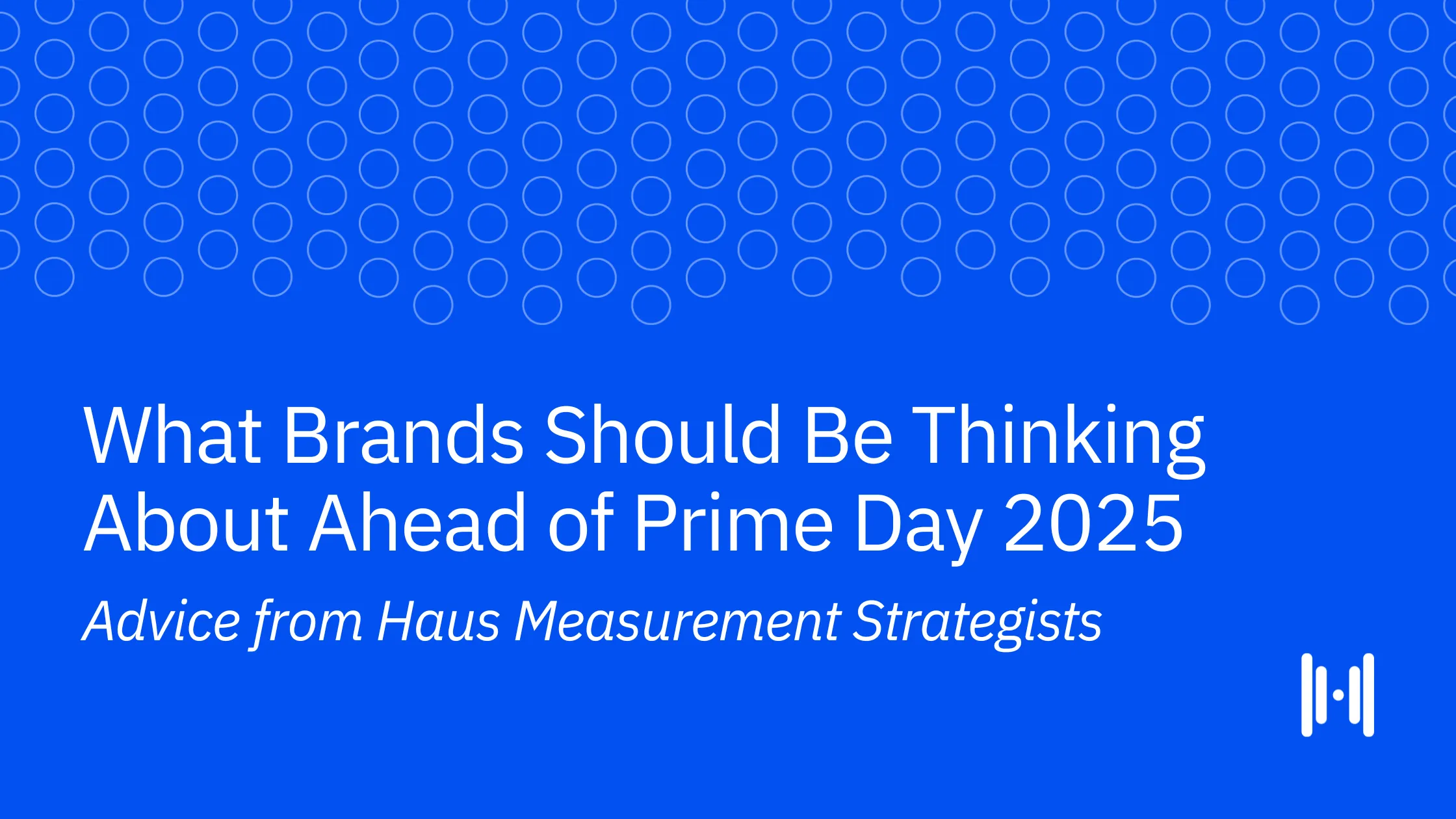
.webp)
.webp)
.webp)
.webp)
.webp)

.webp)


.avif)
.avif)



.avif)
.avif)
.avif)

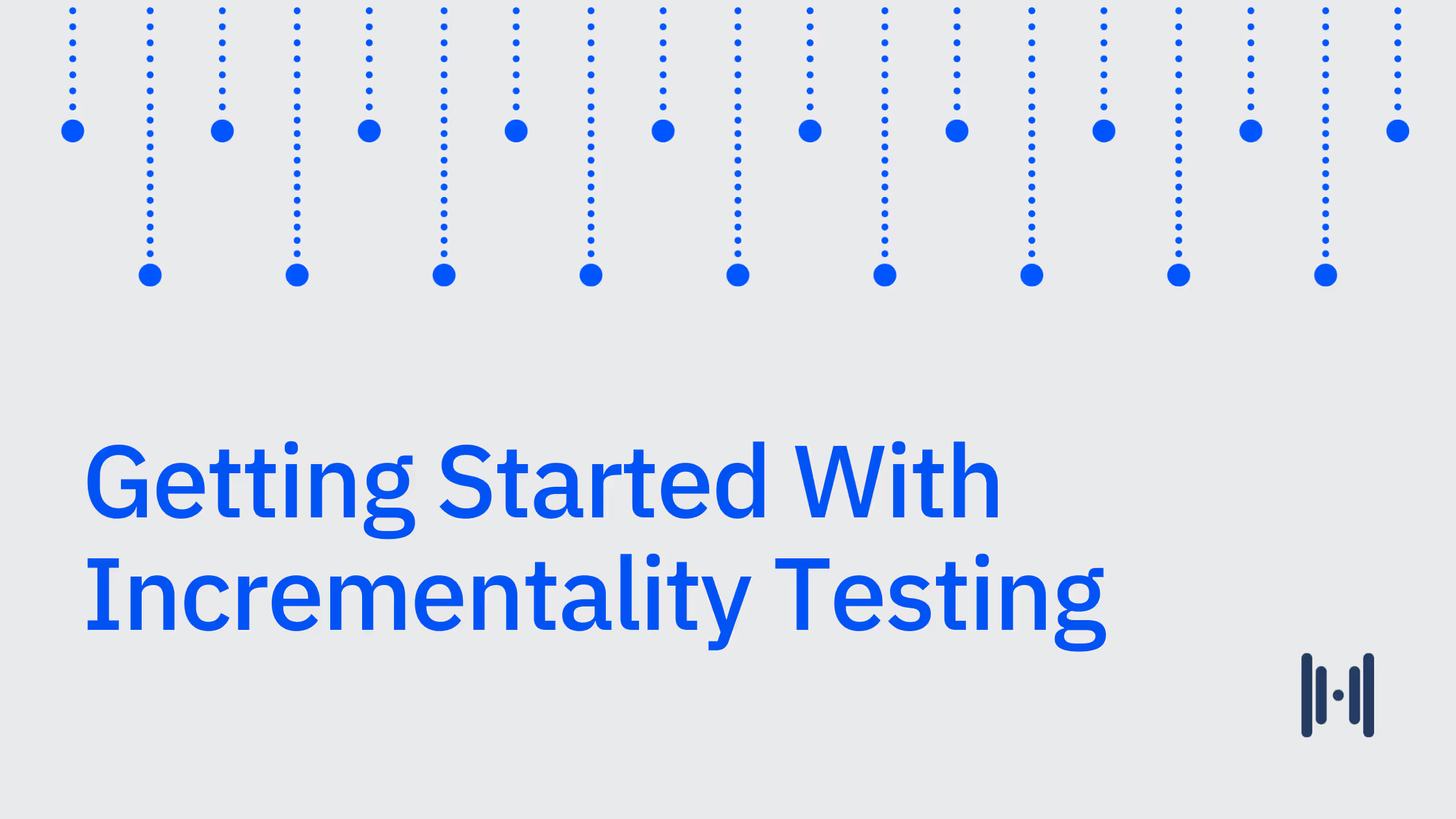
.avif)
.avif)
.avif)
.avif)
.avif)
.avif)




.png)
.avif)
.png)
.avif)
